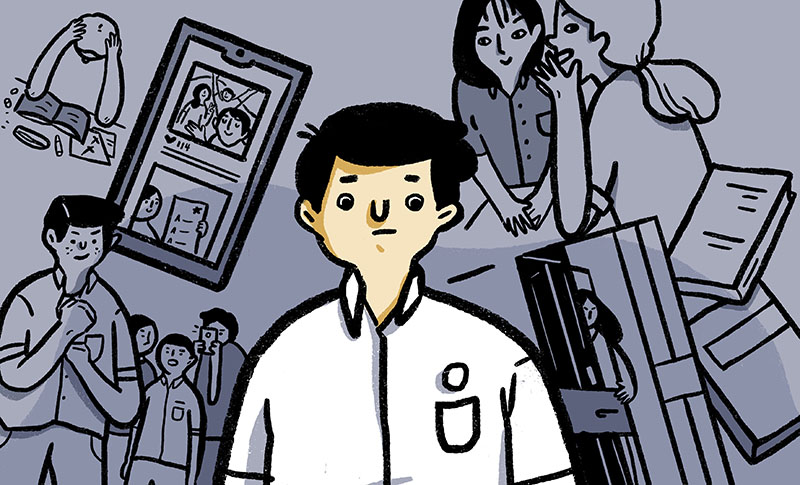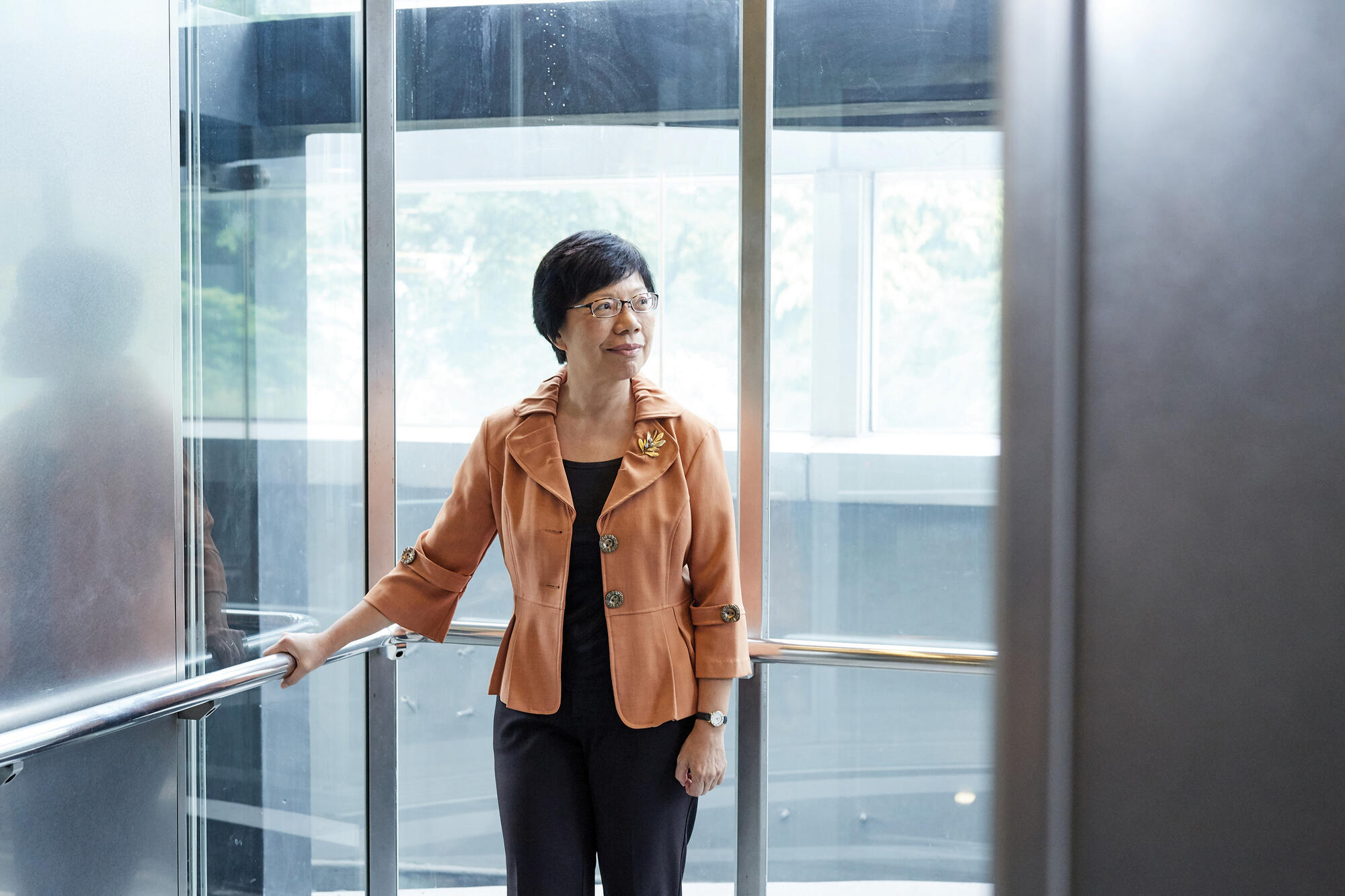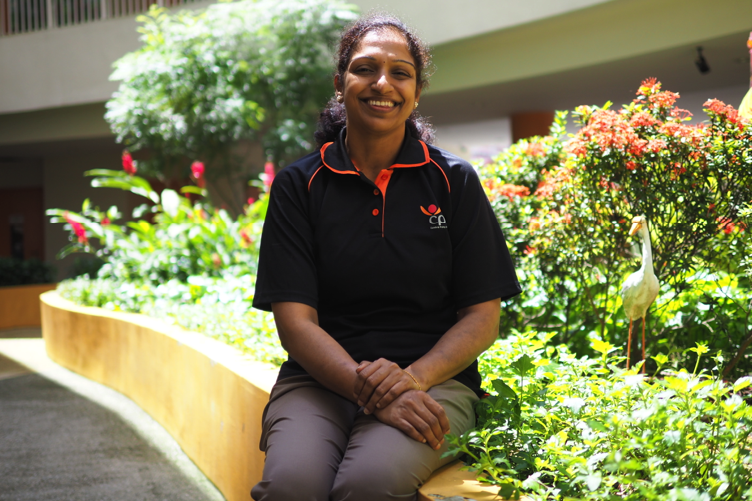The missing girl
Benjamin Kwok has never forgotten the time he visited a student’s home in early 2001.
He’d recently been posted to Bendemeer Secondary School as discipline master, and learned that one of the girls had been absent for several days. He and the school’s Operations Manager—a retired police officer—decided to investigate one afternoon.
The girl was not home. They were greeted by her mother, who reeked of alcohol.
Kwok was caught off guard. How long had the mother been drinking? How could he begin a conversation with her?
His colleague, however, was not perturbed. He said “Wah, ma’am. Happy Hour started early eh!” The woman managed a laugh, and they started talking.
Over a few weeks, they managed to convince the girl to attend classes again. Her mother felt so assured by the experience that she eventually sent the girl’s younger sister to Bendemeer as well.
This case was an eye-opener for Kwok. It drove home two lessons: First, a student’s offence may simply be a response to their home environment. Second, rapport and trust are crucial to managing discipline cases well. “It has to be personal. You have to identify teachers, staff members who can connect with these students.”
Over the next few years, Kwok sought to develop this very rapport with his new charges. If they had relationship woes, he’d hear them out. If they were assisting with police investigations, he’d provide emotional support. He and his colleagues got to know the kids well enough that they could drop by the void deck where some of them hung out each night to ask how they were doing, and why they hadn’t gone home yet.
The trishaw truant
When another student went missing for an extended period, Kwok was ready.
It did not take him long to find out that the boy was spending his days bringing tourists around on a trishaw. The prospect of moving around independently and making $1,000 a month proved far more attractive than studying.
His source? “When teachers are close to students, things get found out,” he says. “You will get to know a lot through their friends.”
This case proved to be trickier, since the boy’s parents were surprisingly comfortable with him not going to school. Kwok and his colleagues persevered, reaching out to the student through his classmates instead.
The boy returned to school intermittently. Kwok had him report to the school office every morning and at recess, and disciplined him if he failed to do so. But the boy accepted these measures and his attendance improved because, by Kwok’s account, he realised that the teachers “were there for him, that we actually care, in good times and bad.”
The toilet fight
When Kwok was posted to his next school as its Principal, he made sure he staffed his Discipline Committee with teachers who could balance being caring and firm with students at the same time.
It was in there that he had to process one of his most distressing cases. It involved a boy who regularly asserted himself by getting into shouting matches with his teachers, swaggering around campus, and spitting chewed ice at others in the canteen.
Yet, his was a “very pitiful case”—his parents were in jail, and his uncle, who acted as his guardian, was caring but ill-tempered. Kwok always bore that in mind when managing the boy’s conduct.
But his friends were not as kind. One day, two of them dragged him to a toilet and beat him up. They arranged for several others to witness the beating, and for one of them to do a video recording.
The next day, a teacher received a tip-off from a student. He obtained the video and showed it to Kwok.
Setting things right
He immediately rounded up those involved and alerted their parents. But his next concern was that the victim’s legal guardian—his uncle—would not be kind. He might be very upset, and demand that the bullies be severely punished, or worse, he could blame the boy and punish him further at home.
So Kwok spoke with the uncle as well, emphasising that his nephew had done nothing wrong. Kwok also made sure to slip in, “don’t be abusive”.
“It’s not easy to have this kind of conversation,” he says in hindsight. “But I was able to because I’d managed to build up a good relationship with the uncle.”
Having put out that fire, he turned his attention to the offenders. Due to the severity of the beating, the two bullies were caned and counselled. Their parents, thankfully, were supportive of the school’s actions.
Kwok was most upset, however, about the bystanders. “It would be wrong if they moved on from school thinking they were not involved.” They had to write copious reflections on what their roles were, and what they could have done differently. All of them were suspended from school.
Beyond that, Kwok felt it was crucial that the group of students also achieved closure, not least of all because they were all friends. “It was a bad episode, but ten years from now, they should still be able to continue with the relationship.” So the school spared no effort in counselling all the parties, having regular check-ins for weeks after.
The boy at the centre of it all was grateful that the school had his back, and managed to stay focused on his studies.
Every child (and school) is different
Today, after close to thirty years as an educator, Kwok says he is “still learning.” His latest lesson: even as there is no one-size-fits-all approach to discipline for students, the same applies for schools as well.
Having recently taken over as Principal of Assumption English School, he finds himself adjusting to its warm, positive discipline culture. Students are well-behaved, polite, and get along well with the teachers. Caning was not a practice when he arrived, and he sees no need to introduce it.
He marvels at how his new colleagues convince their students to be orderly during assemblies. Instead of telling them to stop talking, they’d simply say, “I’ve been standing here for however many minutes, I haven’t said anything yet, but you know I’m here. What should you do?”
Kwok likes how this gives students ownership of their behaviour in keeping quiet. Of course, it works because the students understand and accept it, and because his predecessors spent years shaping the culture. “It’s something I do not take for granted as I align myself with this positive tone in the school…it’s wonderful.”
Kwok hopes that parents, too, can learn—to trust schools to do the right thing for their children. “Before taking any action we always make sure there is a proper process, a proper investigation, and that the well-being of the child is met.”
Going by his own track record, parents should take heart.






